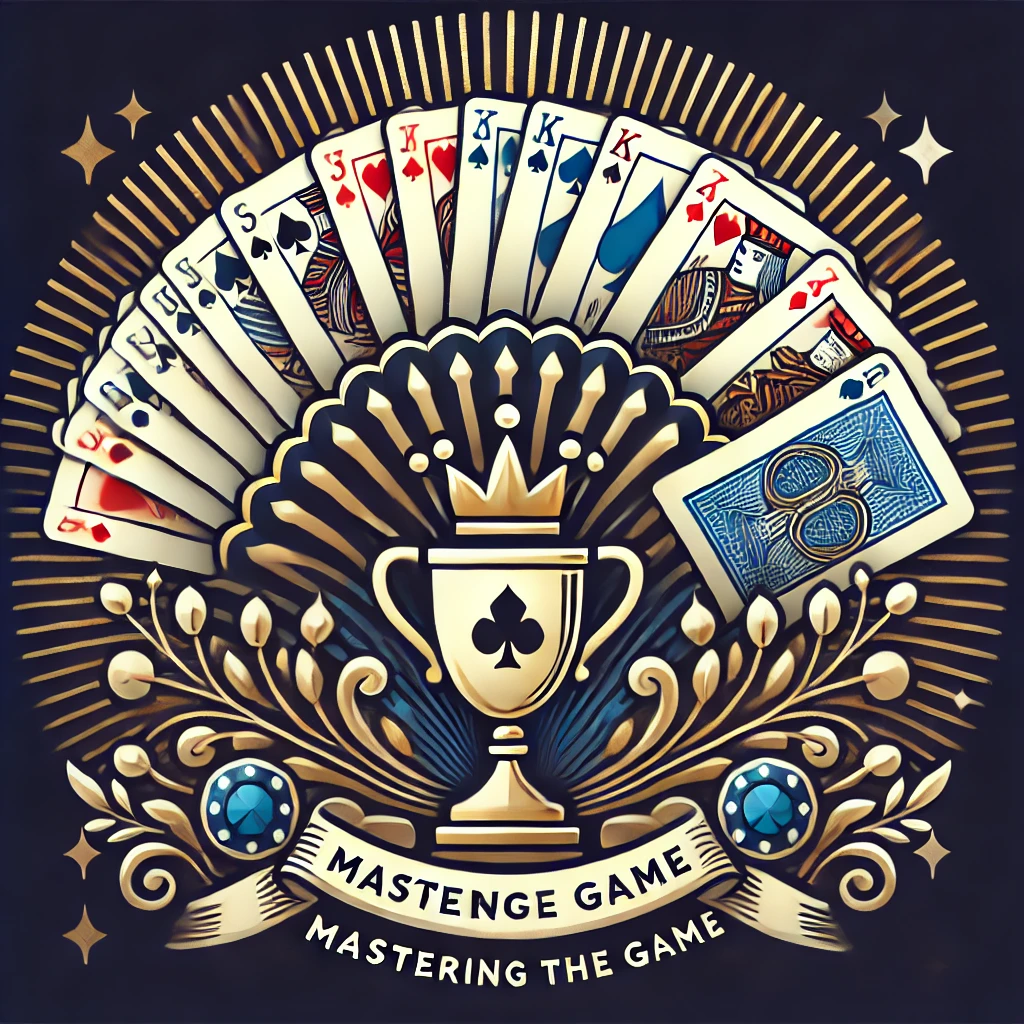Description
Mastering Rummy: An All-Inclusive Guide Rummy is a traditional card game that has enthralled players for many years. Its combination of strategy, skill, & a little bit of luck makes it a fun hobby for both serious competitors & casual players. Anyone hoping to fully enjoy the game of rummy must have a basic understanding of the game. Rummy is essentially a card game in which you must form sets and runs from a hand of cards in order to merge all of your cards before your opponents do.
Three or four cards of the same rank but different suits make up a set, whereas three or more cards in the same suit make up a run. Two to six players can play the game, and the rules can change slightly depending on the variant—for example, Gin Rummy, Indian Rummy, or Kalooki. Depending on the variation, players are dealt either seven or ten cards to start playing Rummy. One card is dealt face-up to begin the discard pile, and the other cards form a draw pile.
Each player draws from the draw pile or the discard pile, after which they discard one card from their hand. The remaining players reveal their hands to determine points based on unmelded cards after one player successfully melds all of their cards. In order to enhance their abilities and fully enjoy the game, players must comprehend these basic mechanics. The next stage after mastering the fundamentals of rummy is to create a winning strategy that will enable you to outplay your rivals. Careful observation and flexibility are frequently essential components of a successful strategy.
Effective hand management is crucial; this entails paying attention to what your opponents are gathering in addition to concentrating on creating your own sets and runs. You can learn a lot about their tactics and modify your own by observing the cards they pick up and discard. It might be prudent to refrain from discarding cards from a specific suit if you observe that your opponent frequently picks up cards from that suit in order to keep them from finishing their melds.
A successful strategy also requires that you remain adaptable in your approach. In the dynamic game of rummy, things can change drastically with every turn. It’s crucial to be ready to change your strategy depending on the cards you draw and what your opponents do. Don’t be afraid to change your strategy if you have a strong hand at first but discover that it is no longer feasible because the cards are being discarded.
This flexibility, which enables you to seize new opportunities as they present themselves, can frequently mean the difference between success & failure. Understanding Rummy Card Combinations. The ability to master card combinations is a key component of success in rummy. Efficient melding of your hand requires an understanding of how to form sets and runs. Prioritizing the creation of runs over sets whenever feasible is one useful strategy.
The adaptability of runs. Since runs can frequently hold more cards than sets, they are typically more adaptable. A set requires particular ranks that might be more difficult to obtain, but if you have a sequence of 5-6-7 of hearts, for instance, drawing an 8 of hearts would allow you to extend that run further. As the game goes on, you might have more options thanks to this flexibility.
The planning of strategic combinations. Also, it’s critical to understand which combinations, given the cards in your hand, are most advantageous. Consider keeping your high-ranking cards until later in the game when they might be more helpful, for example, if you have several that are difficult to combine into runs or sets. On the other hand, it might be prudent to discard a number of low-ranking cards that are challenging to meld early on in order to reduce the amount of points that could be lost if another player goes out.
Strategic Combinations: Improving Gameplay. Gaining proficiency with these pairings improves your gameplay & enables you to decide which cards to keep and which to discard. Exploring more sophisticated strategies can greatly improve your Rummy gameplay as you gain experience. Card counting is one such method, which entails monitoring which cards have been played and which are still in the draw pile. This ability can help you make strategic decisions about which cards to keep or discard by giving you information about which cards are still available.
You might decide to keep lower-ranking cards that might later form runs or sets if you see, for instance, that a number of high-ranking cards have already been played the game. Bluffing & deception are two more sophisticated strategies. Even though skill and strategy are the main components of Rummy, psychological factors can have a big impact on your opponents’ choices. You can confuse your opponents and possibly throw off their plans by discarding cards that might give the impression that you are aiming for a particular meld while you are actually working toward a different mixture.
When played against more seasoned players who are skilled at interpreting their opponents’ motivations, this psychological warfare can be especially successful. It takes practice and a readiness to pick up new skills with every game to get better at rummy. A good strategy is to play with different opponents on a regular basis.
Because every player has a distinct style & strategy, you may be exposed to different methods and techniques that you had not previously thought of. Making adjustments to your gameplay in response to the tactics of various opponents can help you build a more adaptable skill set that will help you in subsequent games. After every session, think about reviewing your gameplay. Thinking back on your choices—what went well and what didn’t—can help you identify areas for improvement. Recording your game play in a journal can help you spot trends in your style and spot missed opportunities or reoccurring errors.
In addition to helping you better understand the game, this self-analysis will promote a growth mindset that pushes for constant improvement. Recognizing the patterns & inclinations of opponents during gameplay is an essential component of mastering rummy. Every player has a different style, whether they like to play aggressively by melding their cards quickly or more conservatively by keeping high-value cards for longer. By tracking your opponents’ play over a number of rounds, you can spot these trends & modify your approach appropriately. An opponent may be concentrating on finishing particular runs or sets if, for example, they routinely discard some suits while hoarding others. Also, knowing when a rival is about to leave can have a big influence on your choice.
Holding onto cards that could help your opponent finish their melds could be a more defensive move if you observe that they have been picking up cards steadily without discarding many. On the other hand, you may be able to take chances & employ more forceful tactics if it appears that your opponent is stuck with unplayable cards. Learning to Make Decisions in Rummy. Effective decision-making is essential to playing Rummy successfully. Players have decisions to make at every turn that have a big impact on how the game turns out.
Practice weighing possible moves according to long-term tactics as well as short-term gains to improve these abilities. Assessing Actions and Their Results. For instance, think about how drawing from the draw pile or the discard pile will impact your current hand as well as how it might affect your opponents’ future options. By taking a forward-looking approach, you can foresee possible outcomes & modify your plan of action appropriately.
creating a methodical strategy. Making decisions in a methodical manner can improve your gameplay. Ask yourself questions like: What are my immediate goals? How does this move affect my hand?
What information am I giving my opponents? By using this analytical mindset every time you play, you’ll improve your ability to make well-informed decisions that complement your overall strategy. Using Analysis to Improve Your Gameplay. You will be able to make better decisions and increase your chances of winning if you apply this analytical method to your gameplay.
Your decision-making abilities will improve with continued practice, making you a more formidable opponent and making the game more enjoyable overall. It takes both strategic foresight and skillful play to stay ahead of the competition in rummy. Continually modifying your tactics in response to the changing game dynamics is one efficient method to keep an advantage. Success depends on your ability to quickly adjust your strategy in response to the rapidly shifting options as players discard some cards & merge others.
Also, you will remain competitive in any situation if you develop a mindset that is centered on learning and development. Interact with players who are more seasoned than you are; take note of their strategies & solicit input on how you play. By exchanging tactics and experiences with other rummy enthusiasts, joining local clubs or online forums can also offer chances for development. You can improve your gameplay and stay one step ahead of the competition by keeping an open mind and consistently honing your skills.
To sum up, mastering Rummy entails comprehending its foundations while creating strategies that integrate cutting-edge tactics and psychological understanding of opponents’ actions. Players can enjoy this classic card game & greatly increase their chances of winning by developing their decision-making abilities and remaining flexible during each game session.


